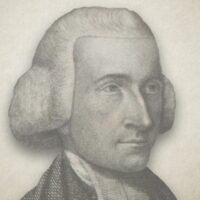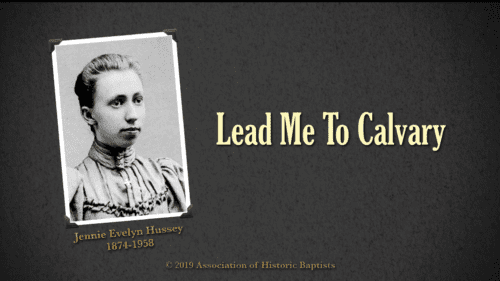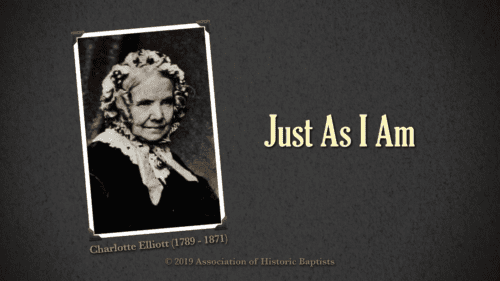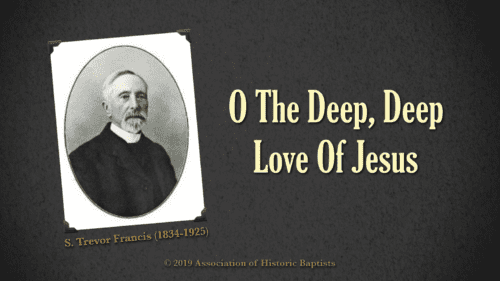Rock Of Ages
Romans 3:19-26: “Now we know that what things soever the law saith, it saith to them who are under the law: that every mouth may be stopped, and all the world may become guilty before God. Therefore by the deeds of the law there shall no flesh be justified in his sight: for by the law is the knowledge of sin. But now the righteousness of God without the law is manifested, being witnessed by the law and the prophets; even the righteousness of God which is by faith of Jesus Christ unto all and upon all them that believe: for there is no difference: for all have sinned, and come short of the glory of God; being justified freely by his grace through the redemption that is in Christ Jesus: whom God hath set forth to be a propitiation through faith in his blood, to declare his righteousness for the remission of sins that are past, through the forbearance of God; to declare, I say, at this time his righteousness: that he might be just, and the justifier of him which believeth in Jesus.”
Augustus Toplady (1740-1778) was an English preacher, theologian and hymn writer, belonging to the Church of England. He staunchly opposed Arminianism, nurtured high views of sovereign grace, and was one of the leading figures who stood against the humanism and sophistry of John Wesley. He is best known for the hymn, “Rock of Ages”, but was also a prolific writer whose works are published in six volumes. John Gadsby wrote of him:
“Augustus Montagu Toplady was born at Farnham, Surrey, Nov. 4th, 1740. Toplady lived in a day when Arminianism vigorously reared its head in the Protestant Church, when the Arminians broached the heresies that "every believer, till he comes to glory, works for as well as from life," that "nothing can be more false than that a man is to do nothing in order to justification," that election is a "horrible decree," &c; and Toplady vigorously combated those doctrines. About that time the Calvinistic and Arminian (or Wesleyan) Methodists were divided. When Huntington was raised up, he found that, in the Calvinistic churches, all who professed the doctrines of grace were reputed to be Christians, especially if they could talk largely of election, predestination, &c; and he was "set," as God's mouth, to draw the line between possession and a mere profession,—to separate the chaff from the wheat. The ministry of each was peculiarly adapted to the times in which he lived; and this has been the case with the Lord's more highly-favored ministers in all ages. I might instance the great Reformers, Calvin, Luther, Zwingle, Waldo, Wickliffe,&c. Each did the work appointed for him, and each was as indispensable in his day as the harrow is after the plough. (See Lady Huntingdon, Whitefield, &c.) But I am rambling from my memoir. Toplady's father was a major, and died at the siege of Carthagena soon after Toplady was born. Toplady received his early education at the Westminster School, and thence went with his mother to Ireland. When about the age of 10, it pleased God in his providence to direct his steps into a barn, at a place called Codymain, where a layman was preaching. The word was fixed on his conscience. Reflecting upon the circumstance a few years afterwards, he says, "February 29th, 1768, at night, after my return from Exeter, my desires were strongly drawn out, and drawn up to God. I could, indeed, say that I groaned with the groans of love, joy, and peace; but so it was, even with comfortable groans that cannot be uttered. That sweet text, 'Ye, who were sometimes afar off, are made nigh by the blood of Christ,' (Eph. 2:13,) was particularly delightful and refreshing to my soul; and the more so as it reminded me of the days and months that are past, even the day of my sensible espousals to the Bridegroom of the elect. It was from that passage that Mr. Morris preached on the memorable evening of my effectual call by the grace of God, under the ministry of that dear messenger; and under that sermon I was, I trust, brought nigh by the blood of Christ, in August, 1756. Strange that I, who had so long sat under the means of grace in England, should be brought nigh unto God in an obscure part of Ireland, amidst a handful of God's people met together in a barn, and under the ministry of one who could hardly spell his name! Surely it was the Lord's doing, and is marvellous! The excellency of such power must be of God, and cannot be of man. The regenerating Spirit breathes not only on whom, but likewise when, where, and as he listeth."—In June, 1762, Toplady "received the imposition of hands," and subscribed to the Articles, &c, of the Church of England five times. He "did not believe them,” he said, "because he subscribed to them, but he subscribed to them because he believed them." He considered them, indeed, as almost, if not quite, immaculate. In one of his works he remarks, that if the apostles had lived in that day, he believed they would all have been members of the Church of England! So great is the infatuation with which even good men may be left to be carried away. Shortly after he entered the ministry, he was inducted into the living of Blagdon, Somersetshire, but subsequently resigned it, as he learnt that it had been purchased for him. He first possessed the living of New Ottery, which he exchanged in 1708 for that of Broad Hembury, near Honiton, Devonshire, which he held until his death. Through the lenity exercised towards his parishioners, the whole living did not amount to £80 a year. Though Toplady was so staunch an advocate for the Church of England, he was nevertheless courteous and kind to all who differed from him in opinion, so long, as he said to Dr. Priestley, as they were transparent. "Give me," said he, "the person whom I can hold up as I can a piece of crystal, and see through him. I revere and admire real probity wherever I see it; but artifice, duplicity, and disguise I cannot away with." Dr. Gill, the Baptist, he highly esteemed, as he did also many other Dissenters. With John Wesley he was uncommonly severe, not because he had in great measure swerved from the Establishment, and set up as a "head" on his own account, but because he said disingenuousness, disguise, dishonesty, marked many of his goings. Many things were, however, I believe, attributed to Mr. W., of which he knew no more than did Toplady himself, his followers being mainly to blame. But all these things are as well passed by. "But let it not be supposed," he says, "that I bear them (Wesley and his supporters) the least degree of personal hatred. God forbid! I have not so learned Christ. The very men who have my opposition have my prayers also. I dare address the great Shepherd, and say,
“Hast thou a lamb in all thy flock
I would disdain to feed?”
But I likewise wish to add,
“Hast thou a foe, before whose face
I fear thy cause to plead?”
A more sincere and honest man than Toplady was has not, perhaps, existed for 18 centuries. He had the courage of a lion, but his frame was brittle as glass. Excessive study, united with the damp air of Devonshire, was the means of greatly impairing his health, laying the foundation of a consumption, which terminated in his death. He endeavored to change his living for one in a drier part of the island, but could not succeed. His medical advisers, however, recommended him to remove to London, which he did in 1775, when he became more intimately connected with the Countess of Huntingdon and the Calvinistic Methodists.
His friends engaged for him, for Sunday and Wednesday evenings, the French Calvinist Reform Church in Orange Street. His first sermon there was preached on Lord's Day, April 11th, 1770. Three months afterwards he published his selection of hymns, a copy cf which, after much effort, I have procured for the British Museum. There are plenty of copies of a later edition, but it is spurious. In this collection are some hymns of his own, some of Charles Wesley's, some extracted from the "Gospel Magazine," and some from other quarters. As with all other collections published about that period, such as Madan's, Wesley's, Aldridge's, Coughlan's, Lady Huntingdon's, &c. the names of the authors were not attached to the respective hymns. This is to be regretted, as, had it been otherwise, it would have saved a great deal of contention. On publishing his works, after his death, Mr. Row inserted many hymns, and called them Toplady's, which were not his, but which were Charles Wesley's, &c. Taking advantage of this circumstance, many persons, who are ignorant of the facts, have charged Toplady with theft, &c.; whereas Toplady had no more idea that such hymns would be ascribed to him than that one of his hymns, (“Rock of Ages,") inserted in the Wesleyan Selection, would be ascribed to Wesley…
Toplady united, in a very high degree, those various excellences which make a captivating preacher. Dignified and serious, yet singularly pleasing in his appearance, having a melodious voice and a graceful action, with a keen eye, an ardent spirit, and a peculiar talent for fluent and felicitous expression, he could readily gain the attention of any audience. Nor did he fail to impress the hearts of many, "whose tears were often seen to flow along with his own. Yet, after all, it was not the manner, but the matter, which formed the grand charm of his pulpit oratory…
I shall here introduce a few extracts from a narrative published a short time after his death. Some of his observations were, by a few persons who were present, committed to writing at the time. He frequently disclaimed, with abhorrence, the least dependence on his own righteousness as any cause of his justification before God, and said that he rejoiced only in the free, complete, and everlasting salvation of God's elect by Jesus Christ, through the sanctification of the Holy Spirit. A remarkable jealousy was apparent in his whole conduct, for fear of receiving any part of that honor which is due to Christ alone. He desired to be nothing, that Jesus might be all and in all. His feelings were so very tender upon this subject, that a friend once undesignedly put him in an agony, by remarking the great loss which the church of Christ would sustain by his death, at this particular juncture. The utmost distress was immediately visible in his countenance, and he exclaimed to this purpose: "What! by my death? No! by my death? No! Jesus Christ is able, and will, by proper instruments, defend his own truths. And with regard to what little I have been enabled to do in this way, not to me, not to me, but to his own name, and to that only, be the glory."
"A short time before his death," says a friend, "at his request, I felt his pulse; and he desired to know what I thought of it. I told him, that his heart and arteries evidently beat weaker and weaker. He replied immediately, with the sweetest smile upon his countenance, 'Why, that is a good sign, that my death is fast approaching; and, blessed be God, I can add, that my heart beats every day stronger and stronger for glory.’”
…On Tuesday, Aug. 11th, 1778, his spirit departed. He was interred in Tottenham Court Chapel. His body had not been long in the earth before Mr. Wesley publicly asserted that he died blaspheming, and in the horrors of despair, and that none of his friends were permitted to see him; and one of the Wesleyan preachers, named Rhodes, asserted that his (Toplady's) case was like the awful one of Francis Spira, and added that “the dreadful manner in which he died had caused a woman who attended him to join the Wesleyan Society." Sir Richard Hill wrote two letters in the "General Advertiser" to Mr. Wesley, calling upon him either to retract the statements or deny having made them. I deeply regret that my limits will not allow me to publish them here, as they were written with ability and to the purpose. A declaration was signed by thirteen persons, who had from time to time been with Mr. Toplady in his last hours, expressing their readiness to testify upon oath, if required, the falsity of Mr. Wesley's statements. Among the names I find that of the woman whom Mr. Rhodes said had joined the Wesleyan Society, and also those of Dr. Andrew Gifford and John Ryland, Sen., and Thomas Evans and Thomas Hough, Mr. Toplady's medical attendants. Well, indeed, might Toplady say of any one who could so act, "Tenderness has no good effect upon him and his pretended family of love. I shall never attempt to hew such millstones with a feather. They must he pressed close like nettles, and then they cannot sting."






